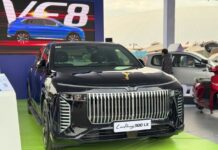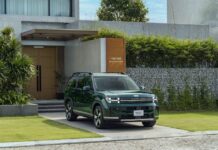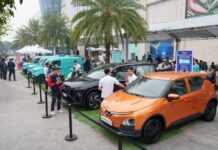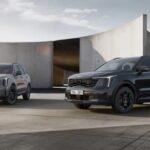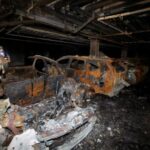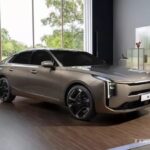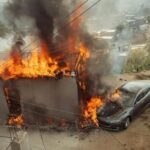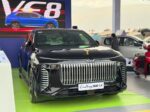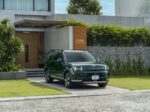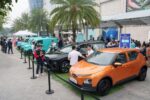Fears about the safety and stability of electric vehicles have intensified following a fire that broke out at 6:15 a.m. on August 1 in Incheon, South Korea.
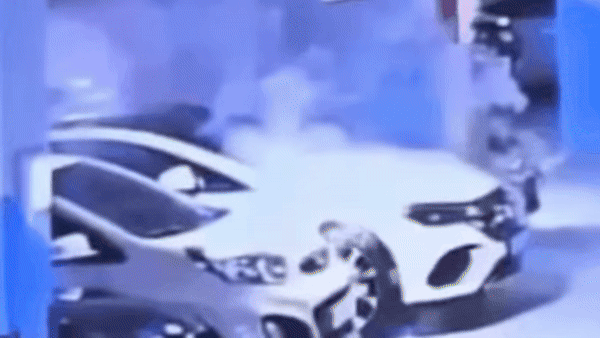
|
|
The Mercedes-Benz EQE Sedan caught fire despite not being plugged in and remaining stationary for 59 hours. |
The Mercedes-Benz EQE Sedan spontaneously combusted even though it had been parked in the same spot for 59 hours without being charged. The consequences were dire: 140 vehicles were damaged, with 40 of them completely gutted. It took emergency services over eight hours to extinguish the blaze, which sent 23 people to the hospital, including seven children. More than 800 individuals were evacuated from the area as 480 apartments lost power.
|
|
|
Authorities investigate the scene of the fire involving a Mercedes-Benz EQE Sedan in Incheon. |
In response to the government’s slow reaction, many apartment and condominium management teams have taken it upon themselves to implement regulations regarding the use of electric vehicles in residential areas. Electric cars are now banned from parking and charging in underground lots and are only permitted to charge at public stations. Some areas have even posted “out of order” signs at underground charging stations.
|
|
|
A notice at the entrance of an underground parking lot in Mapo-gu, Seoul, instructs that electric vehicles are not allowed to park indoors and must use outdoor parking lots. |
According to Reuters, the South Korean government will soon announce comprehensive countermeasures in the event of fires involving electric vehicles, with the measures expected to be submitted as early as next month. These measures will also include laws requiring car manufacturers to disclose the names of their battery suppliers.
Currently, the focus of criticism is on Farasis Energy, the Chinese battery supplier for the Mercedes-Benz EQE Sedan. This information was confirmed by a spokesperson for the Ministry of Land, Infrastructure, and Transport, based on a report from Mercedes-Benz Korea.
|
|
|
The remains of the Mercedes-Benz EQE Sedan are removed from the scene for further investigation. |
In the latest development, Mercedes-Benz Korea has announced that it will provide approximately 4.5 billion won (around $3.3 million) in support to the residents of the affected apartment complex. Although the cause of the fire is still unclear, a spokesperson for the brand stated that this was a “necessary humanitarian gesture.”
However, trust in this type of vehicle has taken a hit in South Korea. According to The Straits Times, another fire involving an electric vehicle occurred in Geumsan, Chungcheong Province, on August 6. On the same day, local media reported that a condominium in Gyeonggi had banned electric vehicles from using the underground parking lot, leading to significant conflicts and physical altercations among residents.
|
The factory fire in Gyeonggi in June 2024, which killed 22 people, sparked widespread concerns about the stability of electric vehicles. |
More seriously, in June 2024, a fire at a lithium-ion battery factory in Gyeonggi Province (located south of the capital, Seoul) claimed the lives of at least 22 people, including 18 Chinese workers. Authorities attributed the rapid spread of the fire to the continuous explosion of battery cells under high temperatures.
Recommended Reads for Your Commute
Our Automotive section presents a selection of captivating books with diverse themes. During your journeys in your vehicles, these books can be your delightful companions when you take a break and relax.
South Korea: Electric Vehicle Makers to Disclose Battery Brands Following 140 EV Fires
The South Korean government has recently taken a keen interest in the automotive industry, specifically regarding the types of batteries used in vehicles. In a bid to gain a deeper understanding of this evolving technology, they have requested that auto manufacturers provide comprehensive details on the batteries that power their cars. This move highlights the government’s proactive approach to staying abreast of innovations in the automotive sector and ensuring they have a clear picture of the technologies driving this dynamic industry forward.

